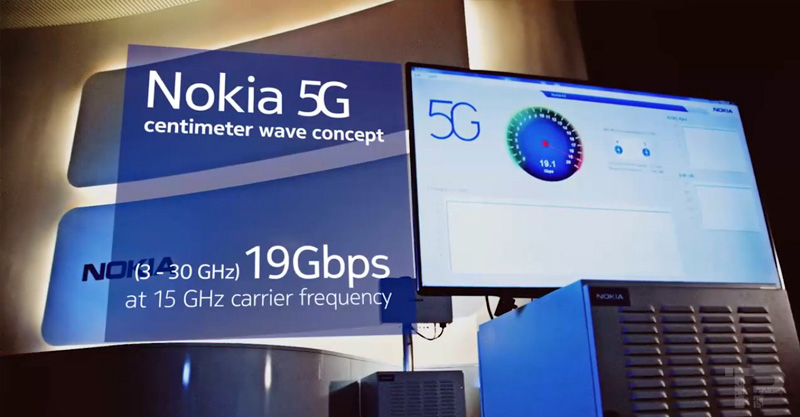According to a press release Nokia and KT (formerly Korea Telecom) have been working closely together to prepare for a deployment of the world’s first mobile 5G network in South Korea in 2017.
Initially, Nokia, KT, and several other key players in the wireless industry, came together to specify a 5G commercial trial system to operate in the 28GHz band when the company hoped for 5G services to be available by 2020. The system will support multi-gigabit user data rates with massively reduced latency, leading to transformed user experience of wireless services.
The technology giant also accepted that deploying 5G services in the real world is much more than just specifying a system. Nokia stated that an accurate and robust network planning will be crucial for the successful roll-out of 5G-supported services.
While believing that it is an exceptionally challenging as 28GHz technology and deployments are new to the industry, Nokia has provided example that the said band “is sensitive to all kinds of blockages, including those caused by human bodies which may block the line-of-sight between device and base station. In addition, the first deployments will be in areas with significant levels of construction over the next two years. Many of the buildings are still just blue prints, making it difficult to perform accurate field measurements!”
However with support from the Advanced Technology Center (ATC) of Nokia Korea, the company provided “initial network plans for the deployment area in Korea using 3D maps, accurate ray-tracing based simulations, and extensive Nokia Bell Labs know-how from prior 5G radio channel modeling work.” – Here is a benchmark in the planning of KT’s 5G network launch.

With a whopping 800MHz system bandwidth and more than 20Gpbs cell throughput, lack of capacity is not the first concern in the network planning process. However, operation at the 28GHz band sets new challenges in terms of coverage, given its more challenging radio propagation characteristics compared to that of current 4G frequencies.
KT has seen these network planning insights and considered them as an important step towards a successful deployment of world’s first mobile 5G network in 2017.



